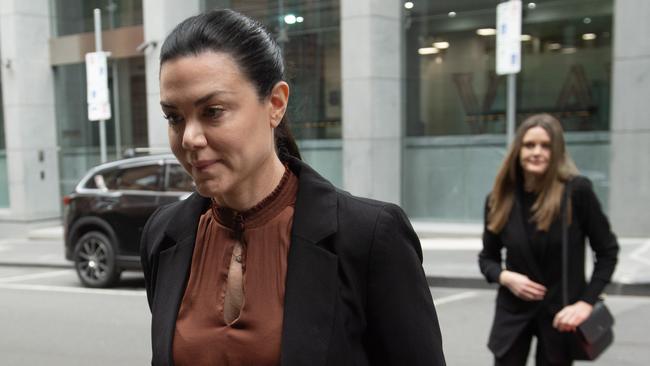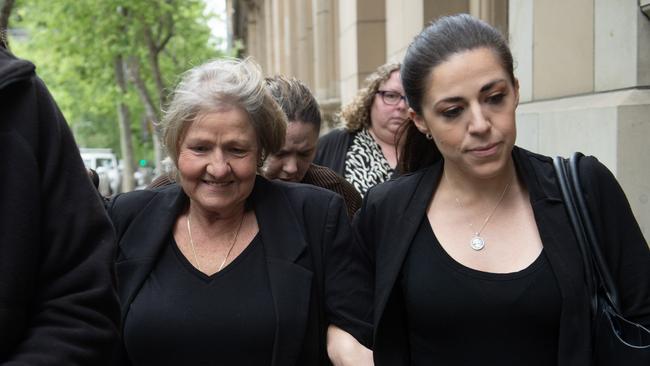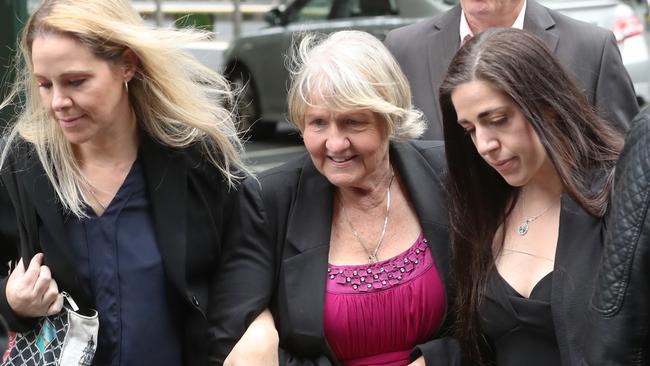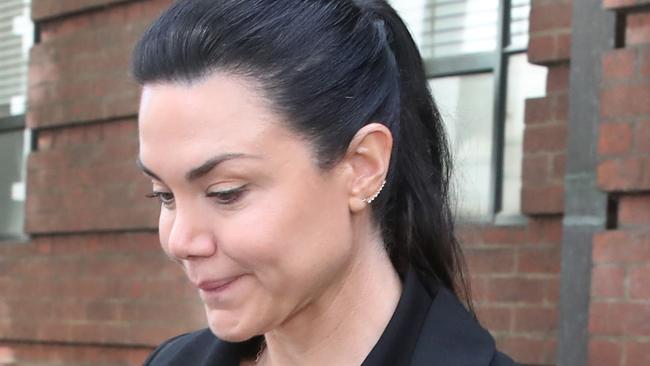The crucial details set to decide the bitter Vanessa Amorosi court case
A judge must decide whether a “kitchen agreement” between Vanessa Amorosi and her mother took place more than two decades ago, amid a bitter property dispute between the pair.

Police & Courts
Don't miss out on the headlines from Police & Courts. Followed categories will be added to My News.
A judge must decide if a “kitchen agreement” between pop star Vanessa Amorosi and her estranged mother over the ownership of a Melbourne home ever took place.
Joyleen Robinson claims the pact was made in her kitchen in February 2001, with her daughter agreeing to relinquish her half ownership of a 20-acre Narre Warren property if she was paid the purchase price.
But the Melbourne-born singer, 42, says no such agreement ever existed.
The bitter legal stoush dispute has been playing out in a Supreme Court trial, where on Wednesday lawyers for both women closed their cases before Justice Steven Moore must decide which of them is entitled to the property.
If he rules in Ms Amorosi’s favour, her mother — who lives on the property — could face eviction.
In reaching his judgement, Justice Moore will need to consider two key issues — the kitchen agreement and witness reliability and credibility.
The kitchen agreement
Ms Amorosi’s lawyer Joel Fetter suggested Ms Robinson fabricated the kitchen agreement, noting it was only referenced in writing in 2015 after she had fallen out with her daughter.
Justice Moore said he found it “strange” that the agreement had not been discussed with Ms Robinson’s husband who did not know about it until years later.
He will have to determine if the agreement took place and, if so, is Ms Robinson entitled to the property.

The lawsuit centres around the Boundary Road property purchased for $650,000 in 2001 when Ms Amorosi was at the height of her success following her Sydney Olympics performance.
Ms Amorosi paid for the property but the title was split evenly between her and her mother, purportedly to protect her from creditors.
She is now seeking full ownership or a court order that it be sold.
But Ms Robinson claims the 2001 kitchen agreement meant she would take full control if she paid her daughter the purchase price.
She claims she paid $710,000 towards the loan of her daughter’s California home in 2014 and is entitled to sole ownership.
In explaining why there was no written evidence of the kitchen agreement, Ms Robinson’s lawyer Daniel Harrison said the pair were “ordinary people” making an “ordinary agreement” who were not acting on legal advice.
Credibility and reliability
Justice Moore will also need to consider if Ms Amorosi and Ms Robinson were telling the truth by considering their credibility and if their accounts were accurate by considering their reliability.
In his closing address, Mr Harrison painted his client’s daughter as an untrustworthy witness who lied to Australia’s financial regulator, deliberately avoided answering questions and couldn’t recall seeing or signing key documents.

The trial heard Ms Amorosi, known for the hit Absolutely Everybody, made a false statement to ASIC when she deregistered her touring company Road Runner by declaring it was not involved in any legal disputes.
Under cross-examination, the singer could not explain why she had signed the document but denied being “deceitful”.
Mr Harrison said she failed to answer the question three times which indicated she was not an honest witness.
“After five or so minutes, presumably after some (legal) advice was given and the issue was explained to her, she said she didn’t understand the document or what the question was,” he said.
“That’s the pinnacle of deliberate evasion.”
During the trial, he suggested she had a bad memory because she could not recall seeing or signing various documents, some dating back decades.
But Ms Robinson was also quizzed about inconsistencies in her own accounts, including why she said her husband was part of the kitchen agreement despite earlier testifying only her and her daughter were present for the conversation.
Under cross-examination, Ms Robinson clarified she made a “mistake on that one” and her husband was not present for the conversation.

Mr Fetter — who was standing in for Philip Solomon KC — said his client was a good witness who had provided a convincing account of discussions with her mother.
He added Ms Amorosi denied knowingly lying to ASIC.

Mr Harrison said if Justice Moore ruled against Ms Robinson, they would not “stand in the way” of a court order sought by Ms Amorosi to sell the home.
Ms Amorosi did not attend Wednesday’s hearing, instead represented by her lawyers, after she flew back to America earlier this week.
Ms Robinson was supported in court by other family members.
Justice Moore will hand down his judgement at a later date.





